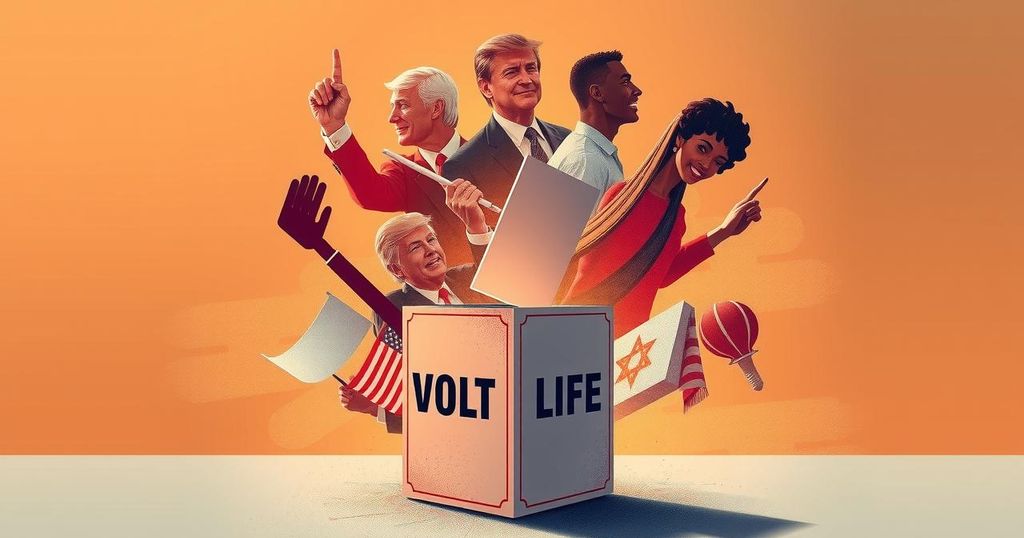World news
2024 ELECTIONS, ARGENTINA, ASIA, BR, BRICS, BUENOS AIRES, CHINA, CO, CORRUPTION, CUBA, DEMOCRACY, ECUADOR, ELECTIONS, EUROPE/ASIA, JAMIL MAHUAD, LATIN AMERICA, LUISA GONZALEZ, MANTA, MEXICO, NOBOA, NORTH AMERICA, PAC, PACHAKUTIK, QUITO, RUSSIA, SAN FRANCISCO, SAN FRANCISCO UNIVERSITY OF QUITO, SOUTH AMERICA, TRADE RELATIONS, U. S, UNITED STATES, VENEZUELA
David O'Sullivan
0 Comments
Ecuador’s Election Results: A Looming Challenge for U.S. Interests
Ecuador’s election results have created a challenging scenario for the U.S. and Latin American democracy, with leftist candidate Luisa Gonzalez closely trailing incumbent Daniel Noboa. The runoff on April 13 will be influenced significantly by the indigenous Pachakutik party, whose support can tilt the election. Gonzalez, a staunch ally of former president Correa, reflects a shift towards a socialist agenda which could strain U.S. relations if she wins.
Ecuador’s recent election results mark a troubling development for the United States and democracy in Latin America. Former president Rafael Correa’s leftist populist party, closely aligned with Venezuela, performed unexpectedly well, setting the stage for a potentially decisive runoff on April 13 between Daniel Noboa and Luisa Gonzalez, Correa’s candidate. Noboa received 44.2% of the vote while Gonzalez secured 43.9%, resulting in a near tie, which signals a significant shift in voter sentiment.
The political landscape is complicated by the influence of the indigenous Pachakutik party, which garnered 5.3% of the vote. Their support in the runoff will be crucial, as both Noboa and Gonzalez are aiming to attract these voters. A Correa-led government could steer Ecuador sharply to the left, posing challenges for U.S. interests in the region, given Gonzalez’s strong ties to the socialism movement championed by Venezuela and Cuba.
Gonzalez, portrayed as a committed follower of Correa, reflects the sentiments of a leftist wave sweeping Latin America. According to former Ecuadorian president Jamil Mahuad, “She is in tune with the socialism of the 21st-century movement,” suggesting alignment with nations within the BRICS bloc led by China and Russia. The implications are significant, as Correa himself has fostered an anti-U.S. stance throughout his political career.
Correa’s presidency from 2007 to 2017 ended in controversy, with his flight from Ecuador following corruption charges. His administration’s actions, such as shuttering the U.S. anti-drug presence in Manta, have heightened tensions with the United States. Political analyst Santiago Basabe indicates that Gonzalez is favored to win the runoff due to the potential alignment with Pachakutik voters, who remember Correa’s previous leadership favorably despite his controversial legacy.
Political consultant Jaime Durán Barba expressed surprise over the narrow margin of the first vote, yet remains optimistic for Noboa’s re-election given the complex voting behaviors of Pachakutik followers. He noted that these indigenous voters prioritize cultural identity over strict ideological lines, which complicates predictions for the runoff.
Amidst rising drug-related violence and an energy crisis in Ecuador, Noboa’s term will hinge on swift actions to ensure public safety and energy stability. With homicide rates reaching an all-time high, he must effectively engage with indigenous communities to secure their support. Unless immediate measures are taken, Gonzalez’s campaign stands to gain traction, potentially reversing Ecuador’s political course toward a leftist regime.
The upcoming runoff election in Ecuador poses significant implications for the United States and regional dynamics in Latin America. The strengthening of Correa’s leftist party could lead to a pronounced shift in Ecuadorian politics, potentially complicating U.S.-Latin America relations. To avoid a setback, President Noboa must act decisively on pressing issues and forge alliances with key voter segments, especially those within the indigenous community, to retain his office and mitigate the risks posed by a Gonzalez victory.
Original Source: buenosairesherald.com




Post Comment